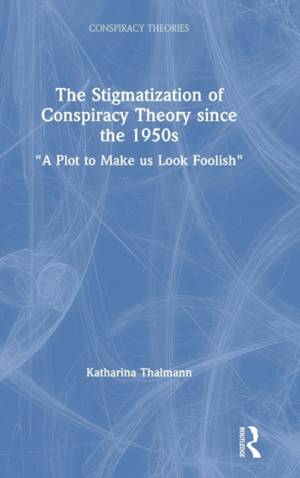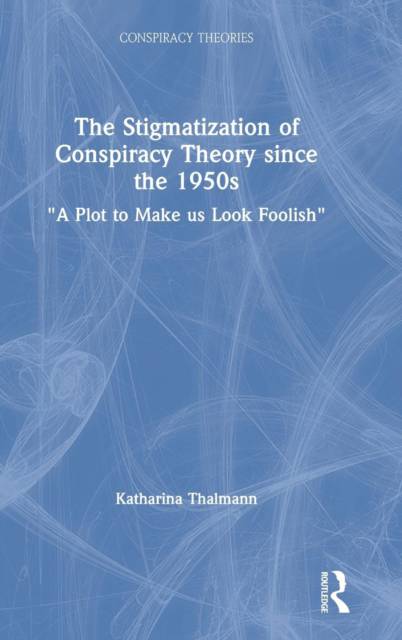
- Retrait gratuit dans votre magasin Club
- 7.000.000 titres dans notre catalogue
- Payer en toute sécurité
- Toujours un magasin près de chez vous
- Retrait gratuit dans votre magasin Club
- 7.000.000 titres dans notre catalogue
- Payer en toute sécurité
- Toujours un magasin près de chez vous
The Stigmatization of Conspiracy Theory Since the 1950s
A Plot to Make Us Look Foolish
Katharina ThalmannDescription
Are conspiracy theories everywhere and is everyone a conspiracy theorist? This ground-breaking study challenges some of the widely shared assessments in the scholarship about a perceived mainstreaming of conspiracy theory. It claims that conspiracy theory underwent a significant shift in status in the mid-20th century and has since then become highly visible as an object of concern in public debates.
Providing an in-depth analysis of academic and media discourses, Katharina Thalmann is the first scholar to systematically trace the history and process of the delegitimization of conspiracy theory. By reading a wide range of conspiracist accounts about three central events in American history from the 1950s to 1970s - the Great Red Scare, the Kennedy assassination, and the Watergate scandal - Thalmann shows that a veritable conspiracist subculture emerged in the 1970s as conspiracy theories were pushed out of the legitimate marketplace of ideas and conspiracy theory became a commodity not unlike pornography: alluring in its illegitimacy, commonsensical, and highly profitable.
This will be of interest to scholars and researchers interested in American history, culture and subcultures, as well, of course, to those fascinated by conspiracies.
Spécifications
Parties prenantes
- Auteur(s) :
- Editeur:
Contenu
- Nombre de pages :
- 214
- Langue:
- Anglais
- Collection :
Caractéristiques
- EAN:
- 9781138346802
- Date de parution :
- 26-02-19
- Format:
- Livre relié
- Format numérique:
- Genaaid
- Dimensions :
- 156 mm x 234 mm
- Poids :
- 498 g







